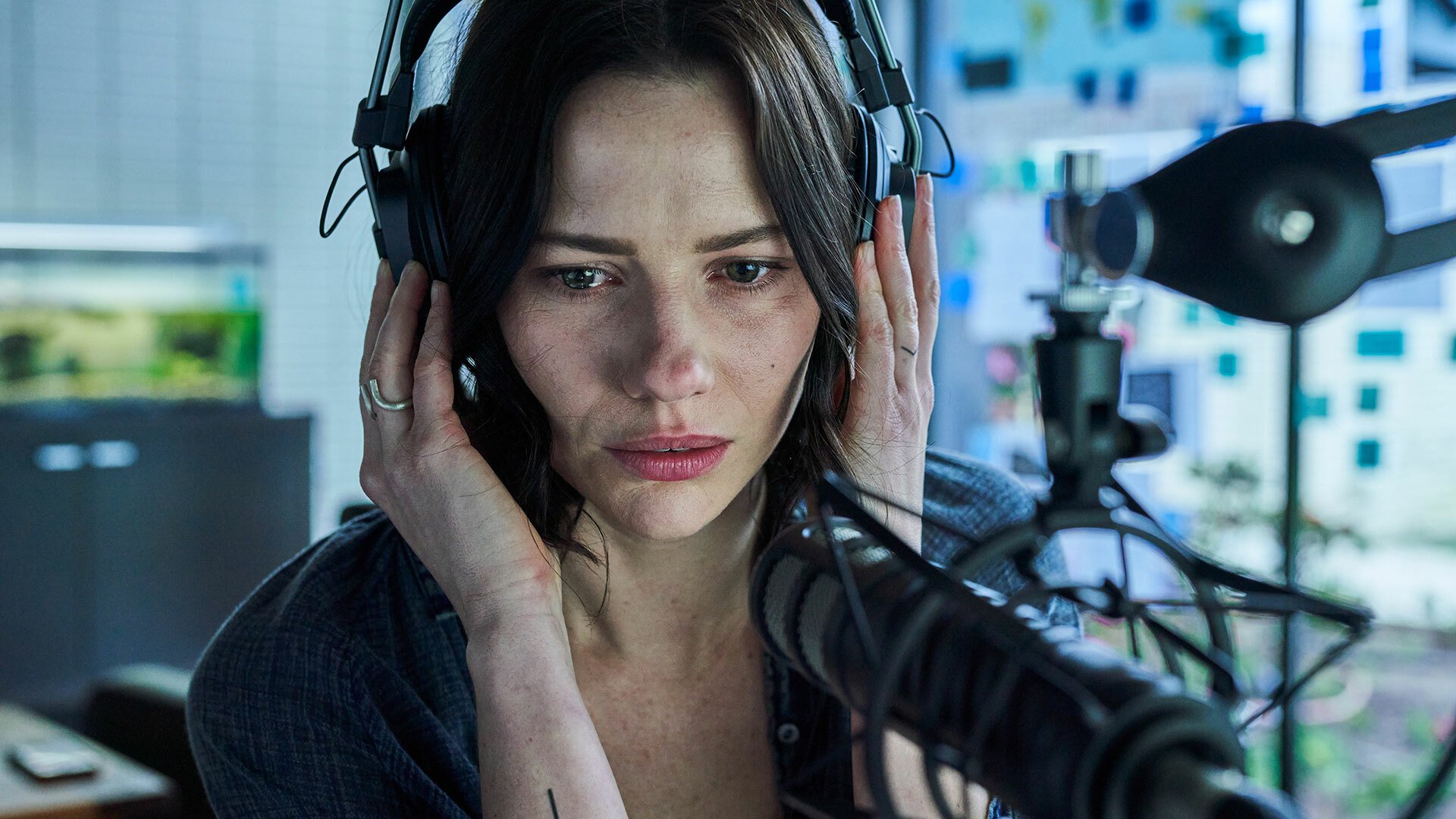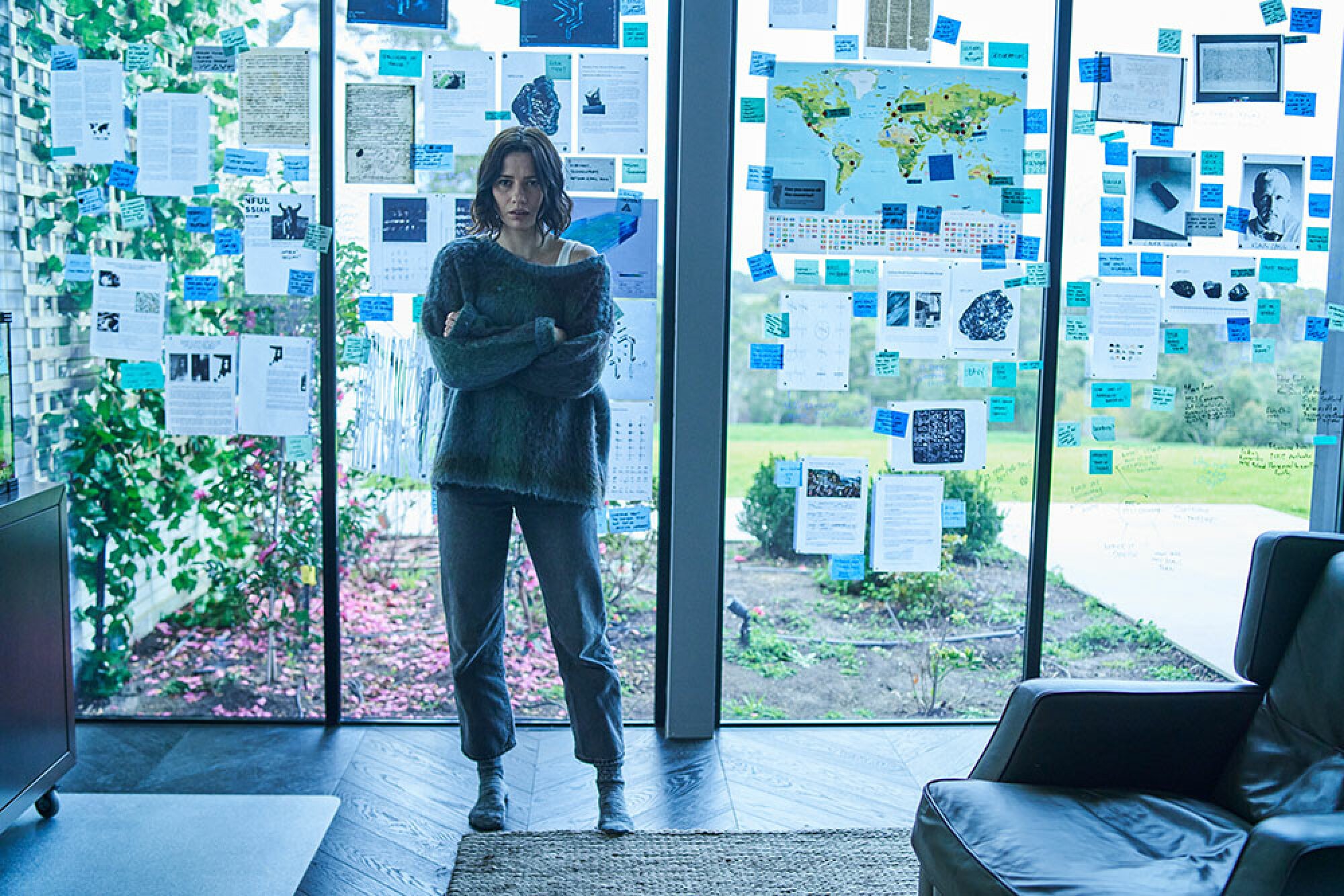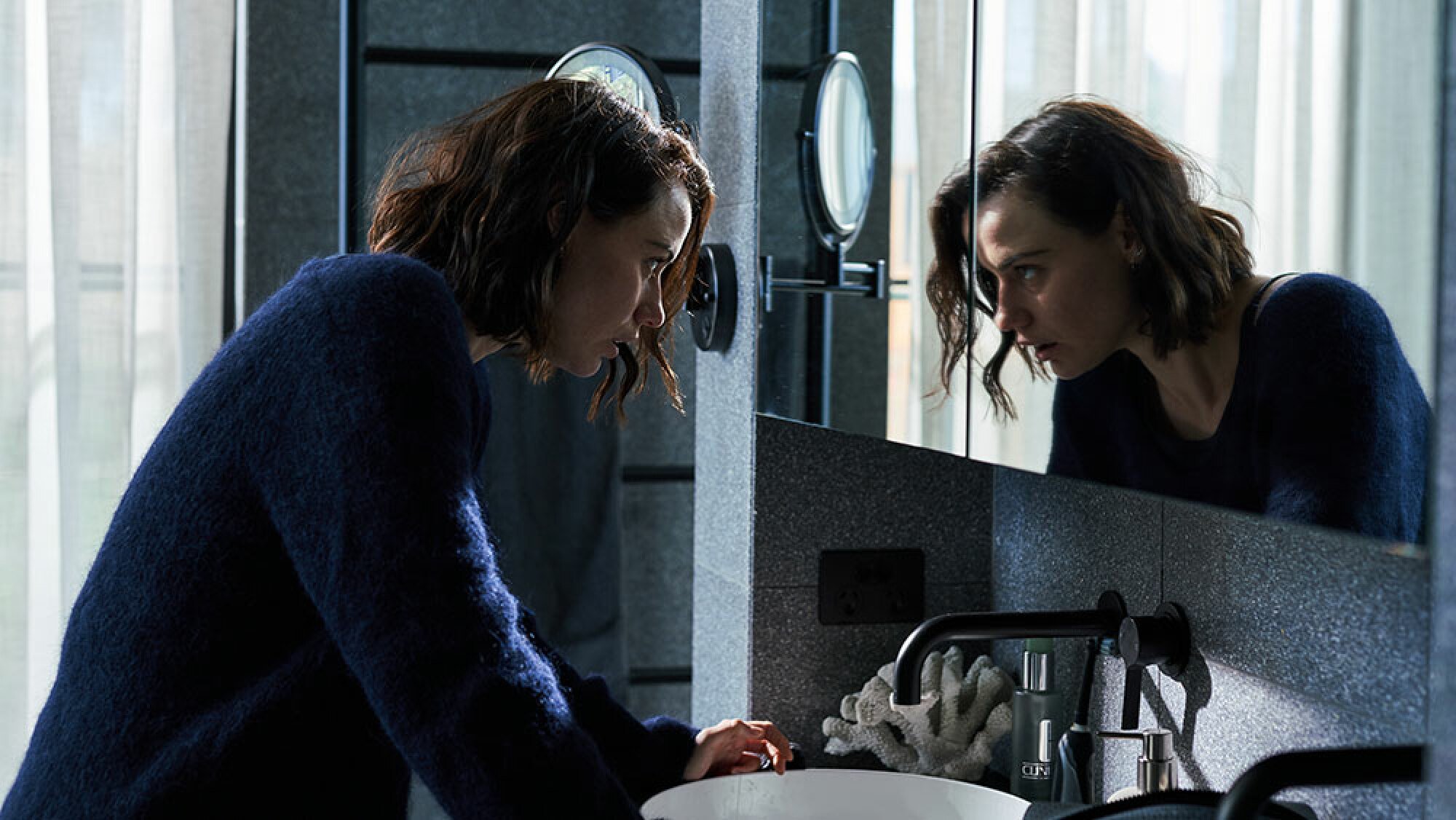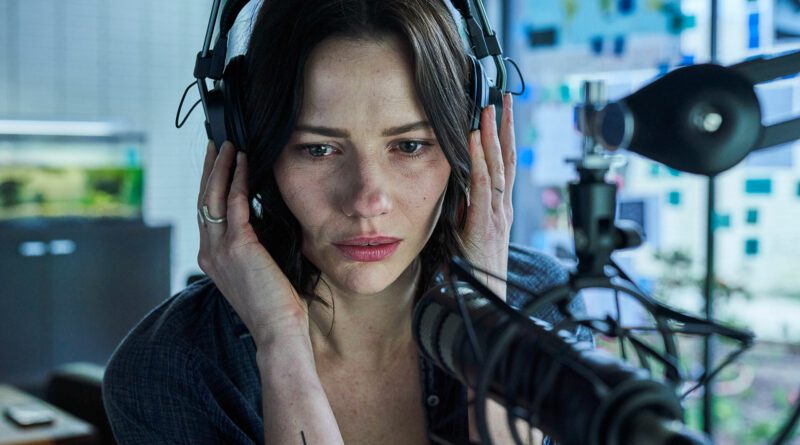‘Monolith’ review: An eerie sci-fi that’s a lesson in micro-budget film-making

It almost sounds like a challenge: Can you make a feature length movie with only one on-screen actor, one location, and a budget of less than half a million?
Written by Lucy Campbell and shot by Matt Vesely, eerie sci-fi mystery Monolith exists within these potentially tricky parameters. Almost the entire movie takes place in a modern, isolated house in the rolling Adelaide Hills, South Australia, following a disgraced journalist (Lily Sullivan) as she yarn-balls a weird global enigma for her new podcast series. The film could easily have been a dismally failed experiment, but Monolith‘s logistical restrictions actually help it shine, adding a claustrophobia and sense of realism that only heightens the core mystery.
What’s Monolith about?
After being publicly accused of failing to check her sources for a major story, a discredited reporter retreats to her wealthy parents’ country home outside of Adelaide to work on a new podcast: Beyond Belief, a deep dive into unexplained mysteries. With the pressure to find a story building, one suddenly lands in her inbox: a phone number and an ambiguous “the truth will out” message.
Soon the journalist is on the trail of a strange phenomenon that appears to be happening across the globe: bizarre black bricks that turn up in people’s lives, usually at a time of distress, and which contain bizarre symbols inside them that aren’t from any recognisable language.
The story itself is creepy enough, but when strange occurrences start happening in the protagonist’s life, it becomes clear that there’s more at play.

Monolith is a lesson in micro-budget film-making.
If it was easy to make a film for less than AUD$ 500,000 (£258,000 / USD$ 330,000), everyone would be doing it, wouldn’t they? The thing is, Monolith makes it look easy. Campbell’s script utilises podcast interviews and tense phone calls to add a sense of creepy realism, while Vesely adds in slow-moving cutaways to bring the interviewees’ stories to life without the need for special effects.
Partway through I did wonder if the movie could have been a podcast — and it probably would have worked — but then we’d lose out on the unsettling visuals, Sullivan’s brilliant lead performance, and the perfect filming location (seriously, whoever found this glass-filled modern house, surrounded by misty grey vistas, deserves an award of their own). Sullivan is on screen for almost all of Monolith‘s 94-minute runtime, pacing anxiously between rooms like a prisoner, obsessively editing audio files and gazing out at the hilly, gum tree-lined surroundings with the increasing fear of a woman who feels observed. Sullivan plays this role perfectly, with the layers of her character peeling back as the story progresses and her own life intersects with the mystery she’s exploring.

Is Monolith‘s ending satisfactory?
The tricky thing about films that ask big questions is that you inevitably end up wanting a big answer. You want to know if the conspiracy is real, or if something otherworldly exists, even if that’s not the main point of the film. Monolith falls into this category, and its ending will subsequently divide people. Without going too far into spoiler territory there’s an underlying ambiguity to the movie that doesn’t disappear by the end credits. But arguably the story is as much about mental illness, our pasts, and the devastating effect both these things can have on us in the present, as it is about the possibility of an extraterrestrial conspiracy. The film’s ambiguous tone allows these themes to be explored simultaneously, and work in a dark harmony together.
Ultimately, Monolith is a film of unease. It builds and builds and, like the protagonist’s questions about the mysterious objects and her own past, it doesn’t go away.
How to watch: Monolith is in theaters from Feb 16.
